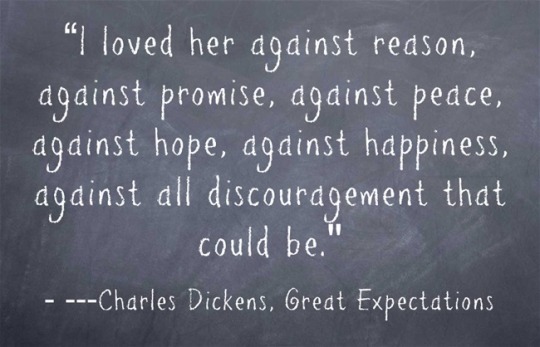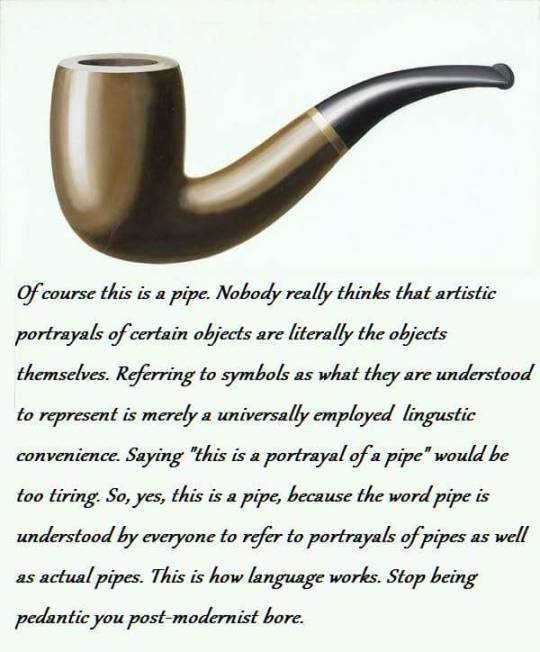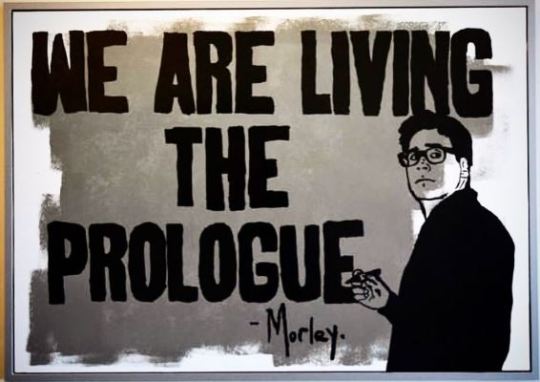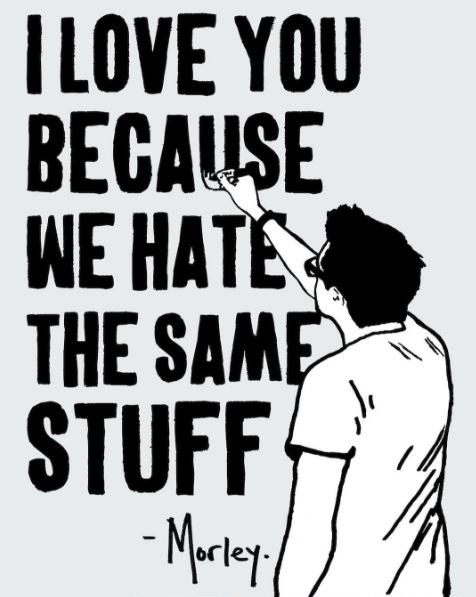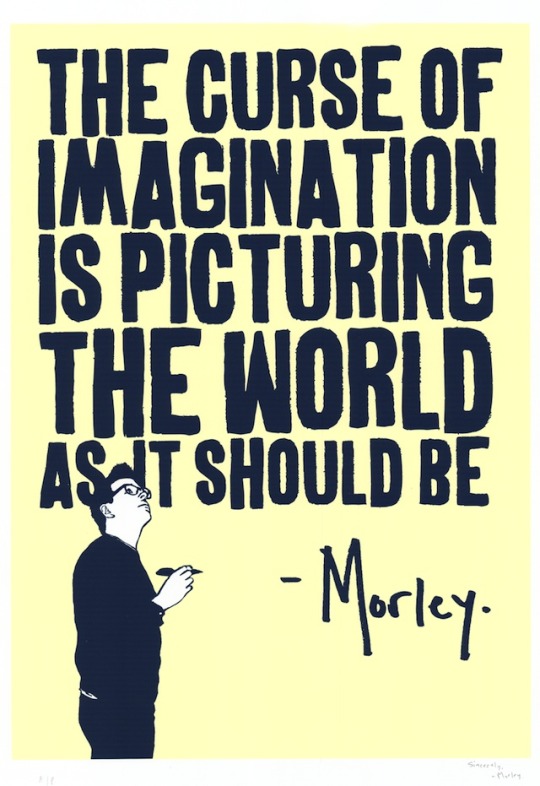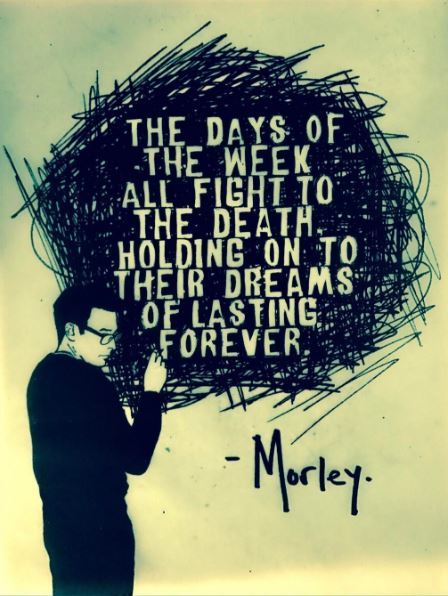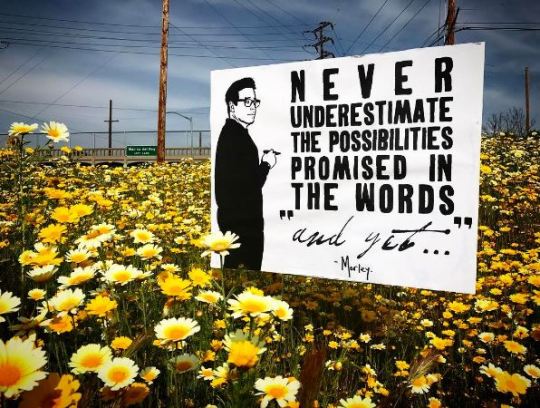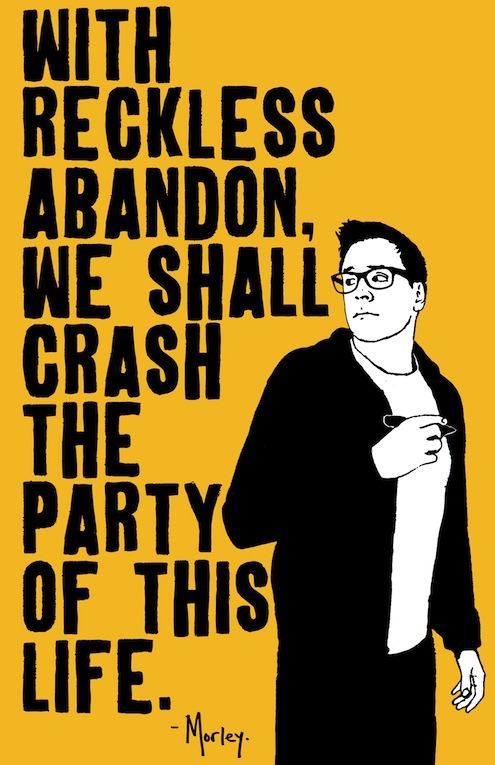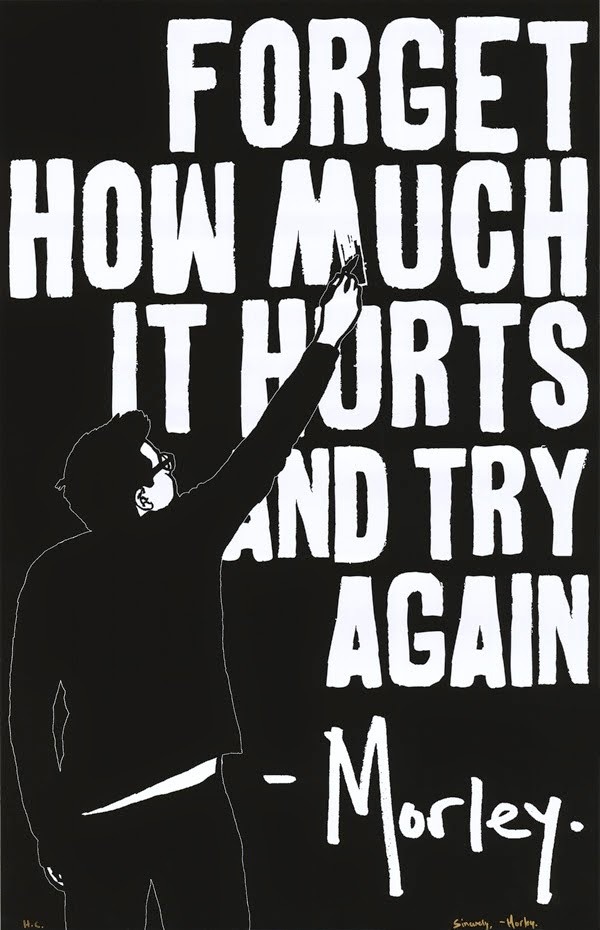Text
Therefore, dear Sir, love your solitude and try to sing out with the pain it causes you. For those who are near you are far away... and this shows that the space around you is beginning to grow vast.... be happy about your growth, in which of course you can't take anyone with you, and be gentle with those who stay behind; be confident and calm in front of them and don't torment them with your doubts and don't frighten them with your faith or joy, which they wouldn't be able to comprehend. Seek out some simple and true feeling of what you have in common with them, which doesn't necessarily have to alter when you yourself change again and again; when you see them, love life in a form that is not your own and be indulgent toward those who are growing old, who are afraid of the aloneness that you trust.... and don't expect any understanding; but believe in a love that is being stored up for you like an inheritance, and have faith that in this love there is a strength and a blessing so large that you can travel as far as you wish without having to step outside it.
--- Rainer Maria Rilke, Letters to a Young Poet
227 notes
·
View notes
Text
“True, we love life, not because we are used to living, but because we are used to loving. There is always some madness in love, but there is also always some reason in madness.”
— — Friedrich Nietzsche
30 notes
·
View notes
Quote
“Sometimes a thought is closer to truth, to reality, than an action. You can say anything, you can do anything, but you can't fake a thought.”
Iain Reid, I'm Thinking of Ending Things
54 notes
·
View notes
Quote
Again, I call to mind that distant moment in the prison at Hermanice when on a hot, cloudless summer day, I sat on a pile of rusty iron and gazed into the crown of an enormous tree that stretched, with dignified repose, up and over all the fences, wires, bars and watchtowers that separated me from it. As I watched the imperceptible trembling of its leaves against an endless sky, I was overcome by a sensation that is difficult to describe: all at once, I seemed to rise above all the coordinates of my momentary existence in the world into a kind of state outside time in which all the beautiful things I had ever seen and experienced existed in a total “co- present”; I felt a sense of reconciliation, indeed of an almost gentle consent to the inevitable course of things as revealed to me now, and this combined with a carefree determination to face what had to be faced. A profound amazement at the sovereignty of Being became a dizzying sensation of tumbling endlessly into the abyss of its mystery; an unbounded joy at being alive, at having been given the chance to live through all I have lived through, and at the fact that everything has a deep and obvious meaning— this joy formed a strange alliance in me with a vague horror at the inapprehensibility and unattainability of everything I was so close to in that moment, standing at the very “edge of the finite”; I was flooded with a sense of ultimate happiness and harmony with the world and with myself, with that moment, with all the moments I could call up, and with everything invisible that lies behind it and has meaning. I would even say that I was somehow “struck by love,” though I don’t know precisely for whom or what.
Václav Havel
#Václav Havel#quotes#literature#nature#nature writing#books#poetic#writing#longreads#awesome#philosophy#deep#deepthinking
14 notes
·
View notes
Quote
The deeper the wound, the more private the pain.
Isabel Allende, Paula
3K notes
·
View notes
Quote
But is the spirit of the people an infallible, a permanent reliance? Is it government? Is this the kind of protection we receive in return for the rights we give up? Besides, the spirit of the times may alter, will alter. Our rulers will become corrupt, our people careless. A single zealot may commence persecutor, and better men be his victims. It can never be too often repeated, that the time for fixing every essential right on a legal basis is while our rulers are honest, and ourselves united. From the conclusion of this war we shall be going down hill. It will not then be necessary to resort every moment to the people for support. They will be forgotten, therefore, and their rights disregarded. They will forget themselves, but in the sole faculty of making money, and will never think of uniting to effect a due respect for their rights. The shackles, therefore, which shall not be knocked off at the conclusion of this war, will remain on us long, will be made heavier and heavier, till our rights shall revive or expire in a convulsion.
Thomas Jefferson, Notes on the State of Virginia (Query XVII)
#Thomas Jefferson#Notes on the State of Virginia#history#quotes#politics#news#donald trump#democrat#republican#libertarian#votethirdparty#third party#slavery#freedom#liberty#anarchy#goldenrule#individualism#collectivism#capitalism#marxism
10 notes
·
View notes
Quote
In thee I fondly hoped to clasp
A friend whom death alone could sever;
Till envy, with malignant grasp,
Detach’d thee from my breast for ever.
True, she has forced thee from my breast,
Yet in my heart thou keep’st thy seat;
There, there thine image still must rest,
Until that heart shall cease to beat.
And when the grave restored her dead,
When life again to dust is given,
On thy dear breast I’ll lay my head—
Without thee where would be my heaven?
George Gordon Byron
18 notes
·
View notes
Quote
Oh! might I kiss those eyes of fire,
A million scarce would quench desire;
Still would I steep my lips in bliss,
And dwell an age on every kiss;
Nor then my soul should sated be,
Still would I kiss and cling to thee:
Nought should my kiss from thine dissever,
Still would we kiss and kiss for ever;
E'en though the numbers did exceed
The yellow harvest's countless seed;
To part would be a vain endeavour:
Could I desist?--ah! never--never.
George Gordon Byron
5 notes
·
View notes
Quote
Do what he will, he [the profane man] is an inheritor. He cannot utterly abolish his past, since he himself is a product of his past. He forms himself by a series of denials and refusals, but he continues to be haunted by the realities that he has refused and denied. To acquire a world of his own, he has desacralized the world in which his ancestors lived; but to do so he has been obliged to adopt an earlier type of behavior, and that behavior is still emotionally present in him, in one form or another, ready to be reactualized in his deepest being.
Mircea Eliade, The Sacred and the Profane: The Nature of Religion
12 notes
·
View notes
Photo
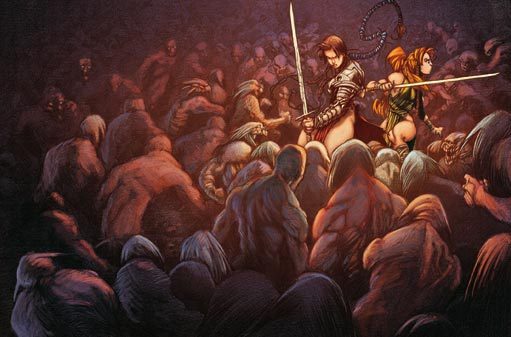


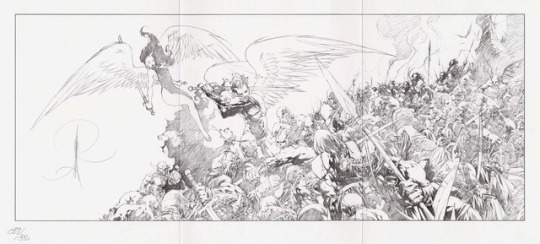
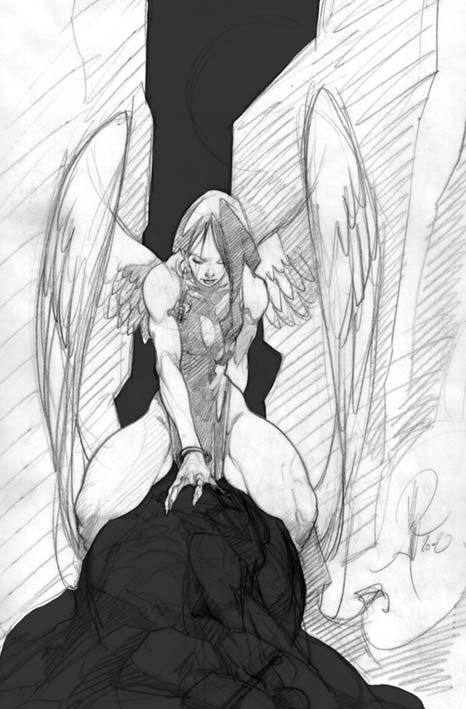
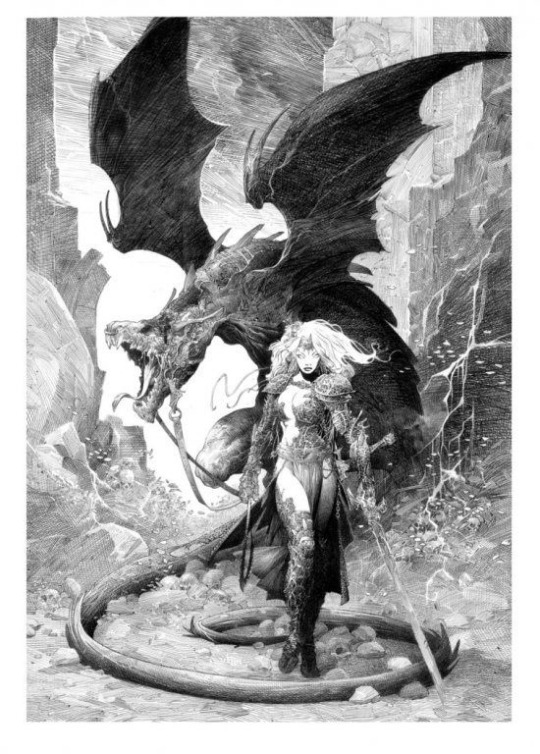
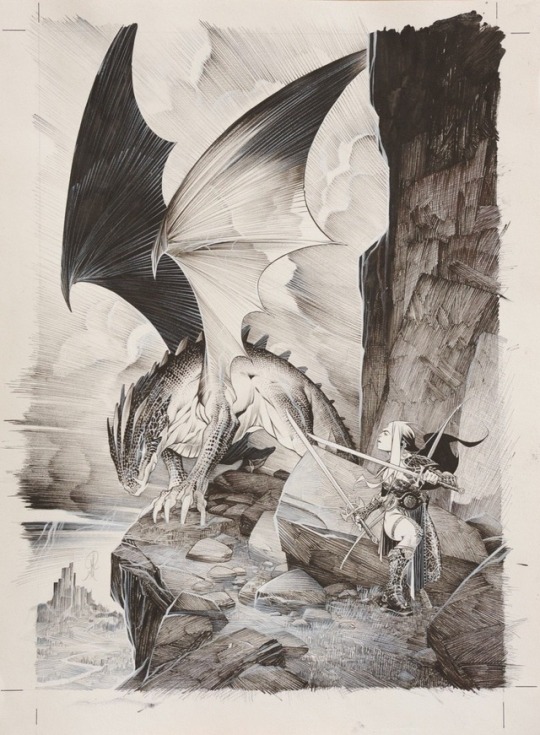
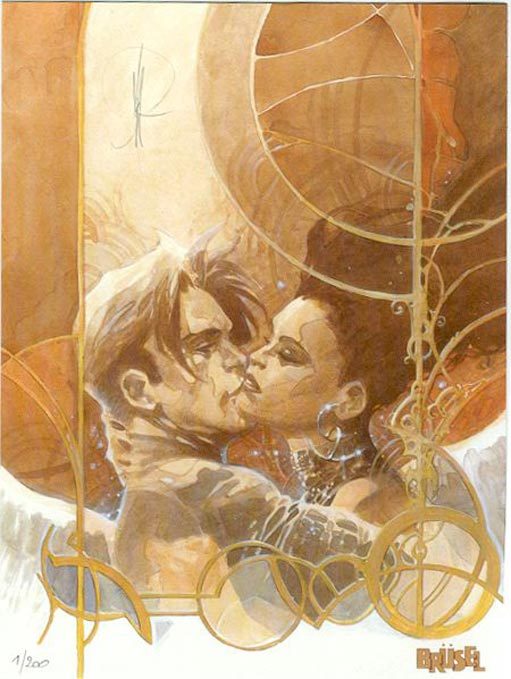

Alberto Varanda
5 notes
·
View notes
Quote
Devaluation of the Earth, hostility towards the Earth, fear of the Earth: these are all from the psychological point of view the expression of a weak patriarchal consciousness that knows no other way to help itself than to withdraw violently from the fascinating and overwhelming domain of the Earthly. For we know that the archetypal projection of the Masculine experiences, not without justice, the Earth as the unconscious-making, instinct-entangling, and therefore dangerous Feminine. At the same time the projection of the masculine anima is mingled with the living image of the Earth archetype in the unconscious of man; and the more one-sidedly masculine man's conscious mind is the more primitive, unreliable, and therefore dangerous his anima will be. However, the Earth archetype, in compensation to the divinity of the archetype of Heaven and the Father, that determined the consciousness of medieval man, is fused together with the archaic image of the Mother Goddess.
Yet in its struggle against this Mother Goddess, the conscious mind, in its historical development, has had great difficulty in asserting itself so as to reach its – patriarchal - independence. The insecurity of this conscious mind-and we have profound experience of how insecure the position of the conscious mind still is in modern man-is always bound up with fear of the unconscious, and no well-meaning theory "against fear" will be able to rid the world of this deeply rooted anxiety, which at different times has been projected on different objects. Whether this anxiety expresses itself in a religious form as the medieval fear of demons or witches, or politically as the modern fear of war with the State beyond the Iron Curtain, in every case we are dealing with a projection, though at the same time the anxiety is justified. In reality, our small ego-consciousness is justifiably afraid of the superior power of the collective forces, both without and within.
In the history of the development of the conscious mind, for reasons which we cannot pursue here, the archetype of the Masculine Heaven is connected positively with the conscious mind, and the collective powers that threaten and devour the conscious mind both from without and within, are regarded as Feminine. A negative evaluation of the Earth archetype is therefore necessary and inevitable for a masculine, patriarchal conscious mind that is still weak. But this validity only applies in relation to a specific type of conscious mind; it alters as the integration of the human personality advances, and the conscious mind is strengthened and extended. A one-sided conscious mind, such as prevailed in the medieval patriarchal order, is certainly radical, even fanatical, but in a psychological sense it is by no means strong. As a result of the one-sidedness of the conscious mind, the human personality becomes involved in an equally one-sided opposition to its own unconscious, so that actually a split occurs. Even if, for example, the Masculine principle identifies itself with the world of Heaven, and projects the evil world of Earth outwards on the alien Feminine principle, both worlds are still parts of the personality, and the repressing masculine spiritual world of Heaven and of the values of the conscious mind is continually undermined and threatened by the repressed but constantly attacking opposite side. That is why the religious fanaticism of the representatives of the patriarchal World of Heaven reached its climax in the Inquisition and the witch trials, at the very moment when the influence of the archetype of Heaven, which had ruled the Middle Ages and the previous period, began to wane, and the opposite image of the Feminine Earth archetype began to emerge.
Erich Neumann, The Fear of the Feminine and Other Essays on Feminine Psychology
#Erich Neumann#The Fear of the Feminine and Other Essays on Feminine Psychology#quotes#long reads#psychology#philosophy#archetypes#depth psychology
5 notes
·
View notes
Photo
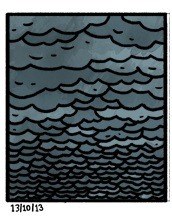
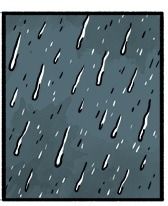

8 notes
·
View notes
Quote
When the world as such cataclysmically manifests itself in the form of a disaster, how do we interpret or give meaning to the world? There are precedents in Western culture for this kind of thinking. In classical Greece the interpretation is primarily mythological – Greek tragedy, for instance, not only deals with the questions of fate and destiny, but in so doing it also evokes a world at once familiar and unfamiliar, a world within our control or a world as a plaything of the gods. By contrast, the response of Medieval and early modern Christianity is primarily theological – the long tradition of apocalyptic literature, as well as the Scholastic commentaries on the nature of evil, cast the non-human world within a moral framework of salvation. In modernity, in the intersection of scientific hegemony, industrial capitalism, and what Nietzsche famously prophesied as the death of God, the non-human world gains a different value. In modernity, the response is primarily existential – a questioning of the role of human individuals and human groups in light of modern science, high technology, industrial and post-industrial capitalism, and world wars.
Eugene hacker, In the Dust of This Planet: Horror of Philosophy vol. 1
23 notes
·
View notes
Quote
Today, passionate engagement is considered almost pathological. I think there is something subversive in saying: This is the man or woman with whom I want to stake everything. This is why I was never able to do so-called one-night stands. It has to at least have a perspective of eternity.
Slavoj Zizek
43 notes
·
View notes
